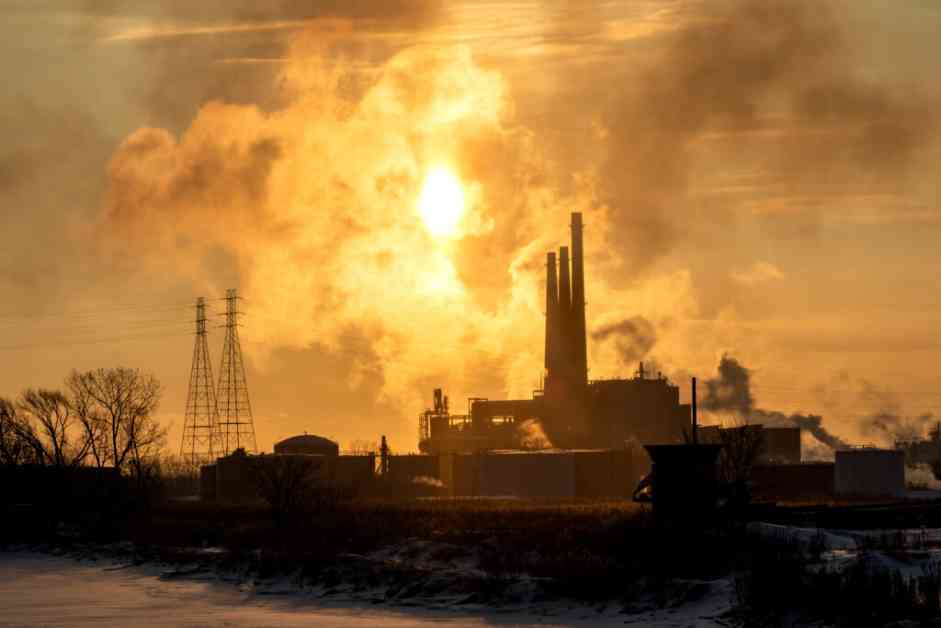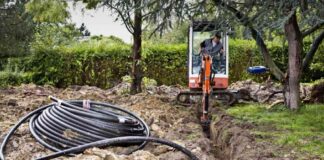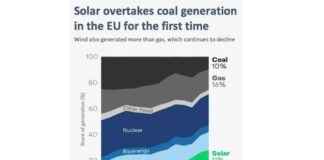Michigan, like, has like, 24,000 known contaminated sites, which is a lot, you know? It’s like, all from heavy manufacturing where companies just like, threw away hazardous stuff without anyone really watching. Taxpayers end up having to clean it all up, which totally sucks, and the state regulators are like, totally overwhelmed by the sheer number of toxic sites.
But hey, it’s not all bad news. Kelly Thayer, who’s like a senior policy advocate with the state’s Environmental Law & Policy Center, thinks we can totally turn these gross brownfields into awesome solar energy projects. Imagine that, right?
People are starting to like, really support solar energy all over the country, according to a survey led by the University of Michigan. Most folks living near solar developments are like, totally into it. For real, the positive vibes outnumber the negative ones by like, a lot.
So, for the study, they were talking about these big solar projects that like, generate a ton of energy. And most people were cool with having them on old industrial sites or coal plants that are like, ready to retire. No one really wants solar panels on forests or farmland, you know?
Thayer, who’s from Frankfort by Lake Michigan, says Michigan already has like, some solar stuff on old industrial sites. There’s this huge 120-megawatt solar array on an old mining spot in the Upper Peninsula, and people were like, totally fine with it.
But then, the Michigan Department of Natural Resources was all like, “Let’s turn this old oil-and-gas place in Gaylord into a solar thing,” and people were not having it. They were mad about cutting down trees and stuff for the solar panels. So, the agency was like, “Fine, fine, we’ll stop and let you all talk about it more.”
This is like, a chance for Michigan to figure out a better way to put up solar panels, you know? Thayer thinks we should focus on places that are already messed up so the solar tech can really shine.
We gotta think about where we’re getting our energy from, you know? Thayer’s group is all about clean energy and making sure our air is nice and clean too.
Last year, Michigan got a huge grant to do big renewable energy projects. They’re even looking at using these old industrial sites that no one wanted anymore. These spots are like, gold mines for a state that wants to use less fossil fuels, according to Thayer.
Michigan is trying to be a leader in fighting climate change, thanks to Gov. Gretchen Whitmer’s plan to be carbon neutral by 2050. They’re making it easier to put up wind, solar, and battery projects. And there’s even a bill that says farmers can use their land for solar panels.
Thayer’s group thinks old coal plants could be perfect for solar panels too. They already have all the connections to the power grid, which saves a ton of time and money. Like, why start from scratch when you can just use what’s already there?
Some clean energy projects in Michigan are taking forever to get connected to the power grid. And there are a bunch of rules that make it hard to build new stuff. Plus, Michigan doesn’t even have a good list of all the gross sites that could be used for solar projects.
But hey, at least there are some guidelines for buying a nasty site and turning it into a solar farm. You gotta do some tests and stuff to make sure the land is safe to use.
Thayer thinks we shouldn’t always make the developers pay for cleaning up these old sites. They’re trying to make laws where the companies that made the mess have to clean it up themselves. And they’re even talking about paying people with solar panels to help out when we need extra power.
Community solar could be a huge deal for Michigan. It could bring in a ton of money and help the state’s economy grow. People need to start using those gross brownfields for solar panels, says a researcher from the University of Michigan.
So, like, Michigan has a lot of work to do to clean up all these gross sites and put up cool solar projects. But hey, it’s all for the greater good, right?














